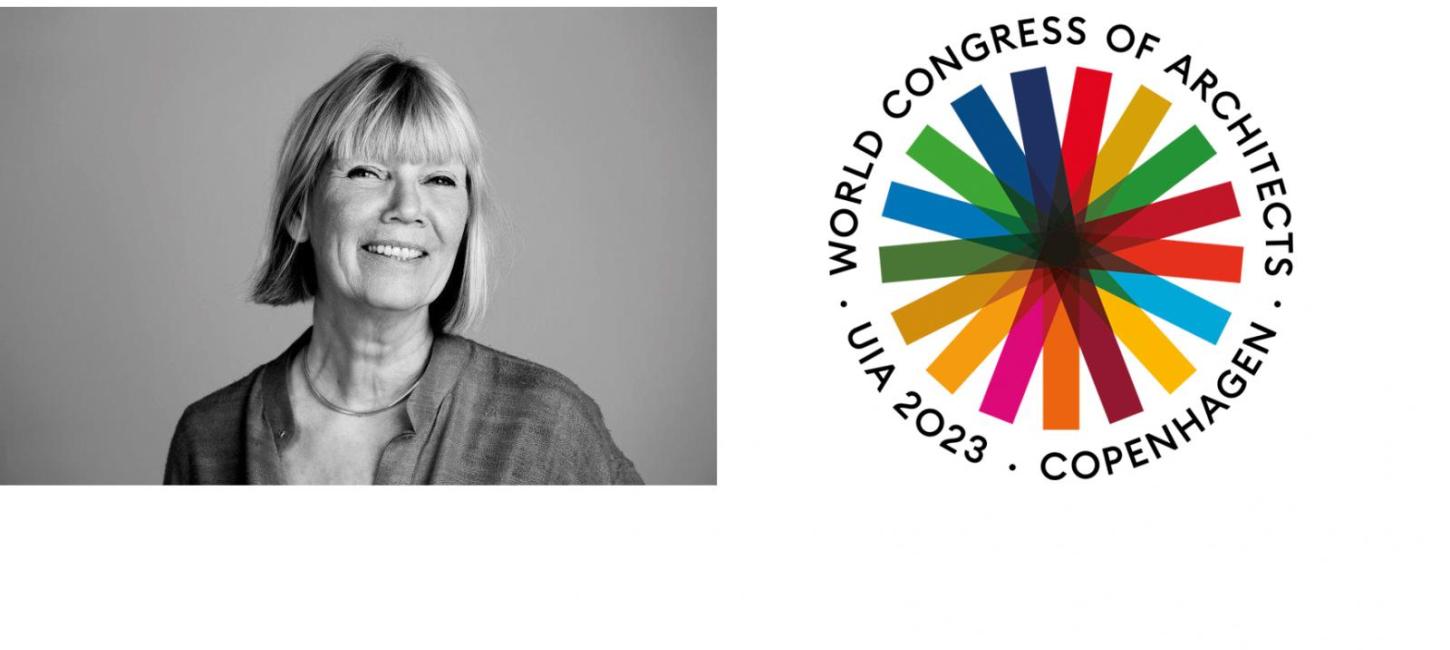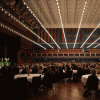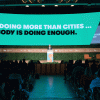Case: UIA 2023
UIA - The Union of International Architects has chosen Copenhagen as the host city in 2023 where more than 15.000 architects will gather in the city to explore how architecture can drive sustainable development. Read about their ambitions below.
ANNETTE BLEGVAD
CEO
UIA CONGRESS 2023
E-mail: ab@uia2023cph.org
We see it as our responsibility to incorporate Global Goals into all our architectural practices, using what we know, working together and challenging the existing - also when it comes to planning a world congress.” - UIA
1. WHAT DO YOU EXPECT WILL BE THE POSITIVE IMPACT FROM YOUR EVENT?
Our overall ambition is to create what we call ‘The Copenhagen Lessons’ – a contribution from the world of architecture to the fulfilment of the United Nations 17 Sustainable Development Goals (SDG). We aim to give recommendations for initiatives and priorities essential for SDG achievement by 2030. When it comes to event-sustainability we hope the impact will be new ways of interacting with the city, giving something back, and taking the next step in social sustainability so no one is left behind also when it comes to taking part in an event.
2. WHAT WILL BE YOURE NEGATIVE FOOTPRINT?
We expect 10-15.000 participants from all over the world, a lot of whom will be flying to Copenhagen. So we are focused on reducing our carbon footprint and will be nudging as many as possible to off-set their flights or to take the train if they are joining from Europe.
3. WHAT ARE YOU PARTICULARLY FOCUSED ON WHEN IT COMES TO SUSTAINABILITY?
We have a triple bottom line and believe that climate/environment, economy and social aspects constitute the elements of sustainability. The UN Global Goals gives us a narrative and a framework. The goals are inseparable and interlinked, and every goal is relevant for the fields of architecture, construction and city planning.
With the UN-pledge ‘Leave No One Behind’ as part of our congress title, we are of course paying a lot of attention to the unfolding of the social aspects of sustainability.
4. WHAT DO YOU THINK WILL BE THE MOST CHALLENGING SUSTAINABILITY ISSUE? AND WHAT WILL YOU AIM TO DO ABOUT IT?
Transportation to and from the congress and accommodation during the congress. We hope to make good deals with European railway companies, making travel by train a smooth and comfortable alternative to the airplane, perhaps even including networking arrangements during the journey. We will also offer more sustainable alternatives to a classic hotel-stay, where we match people by interest with local hosts, so you will both have a local guide and be able to substantially minimise your resource-footprint.
5. WHAT WAS THE REASON YOU CHOSE COPENHAGEN AS THE CITY FOR UIA 2023?
Well, there isn’t a venue outside Copenhagen that can host 10-15.000 people, so Copenhagen was both the only and the best choice in attracting the UIA 2023 to Denmark. Copenhagen provides a unique combination of culture, tolerance, global connectivity, well-functioning public transport, green spaces, and high-quality architecture. For years architectural policies have underlined that architecture of Copenhagen has to be generous to the city’s daily life. That’s why you will experience a city with plenty of architectural and landscape highlights – enabling a rich social life.
6. HOW WILL YOU WORK WITH SUSTAINABLE ACCOMMODATION?
One element is focusing on hotels that are working intensely with eco-labelling systems and accessibility for all. And the other element is working with a partner to match our congress participants with local hosts in Copenhagen.
7. HOW WILL YOU WORK WITH SUSTAINABLE TRAVEL & TRANSPORT?
Good question and we haven’t cracked it yet. Part of it is encouraging our guests to choose transportation with the lowest carbon-footprint and then by coming up with the best off-set-model. Planting a lot of trees afterwards is one model. Channelling money into scientific research could be another. Some might argue that the most sustainable congress is the one never held. And perhaps that is the case sometimes. We see it differently because we are in it for the long-term impact and the congress is a vehicle for this.
8. HOW WILL YOU WORK WITH SUSTAINABLE FOOD?
We are inspired by the C40 Mayor’s Summit Copenhagen, where all food and drinks served at the summit was low-carbon and the food was largely plant based. We haven’t made any decisions yet but we are aiming to source the food locally and organically where possible and to offer season-based ingredients. And of course, a clear plan to avoid waste and the use of surplus food should be in place – this is an example of the link between climate and environmental sustainability and social sustainability.
9. HOW WILL YOU WORK WITH SUSTAINABLE USE OF MATERIALS AND COMMUNICATION?
Materials used at the congress should be carefully selected so that they are reusable, rented or easily recyclable. Electronic communication will be the default option at the congress. Prints of e.g. programmes, flyers, briefing materials are only used when other options are not possible. Because our congress theme is interlinked with sustainability, we have been communicating the link between architecture and sustainability from an early stage. We focus on building awareness and we encourage architects to act in pursuit of a more sustainable world.
10. HOW WILL YOU WORK WITH SOCIAL RESPONSIBILITY?
We believe in leaving no one behind and a tool to secure this is universal design. It’s a value-based strategy that aims to include our human diversity. That means that we need to talk about the congress level of inclusion, safety, equality and diversity.
Social responsibility is part of our overarching theme so it is important for us to find ways to include people when it comes to setting the congress-fee, giving people with a low income or people from developing countries a fair chance to take part in the congress. We need to create access for all through accessibility and universal design solutions at the venues we use and in the city. We want to create new options of virtual participation for people that don’t have the opportunity to take part physically in Copenhagen – so we created a hybrid-congress linking environmental sustainability and social sustainability.
European analyses and experiences from a number of countries – as well as an analysis from VisitDenmark on tourism and accessibility – point to a potentially unredeemed market in tourism for all, especially due to the number of elderly people travelling. The World Health Organization estimates that approximately 15% of the world's population lives with some form of disability, so of course we have to take this into account providing a congress that can accommodate different needs. That’s part of leaving no one behind.
To read the Architecture Guide to the UN 17 Sustainable Development Goals click here




